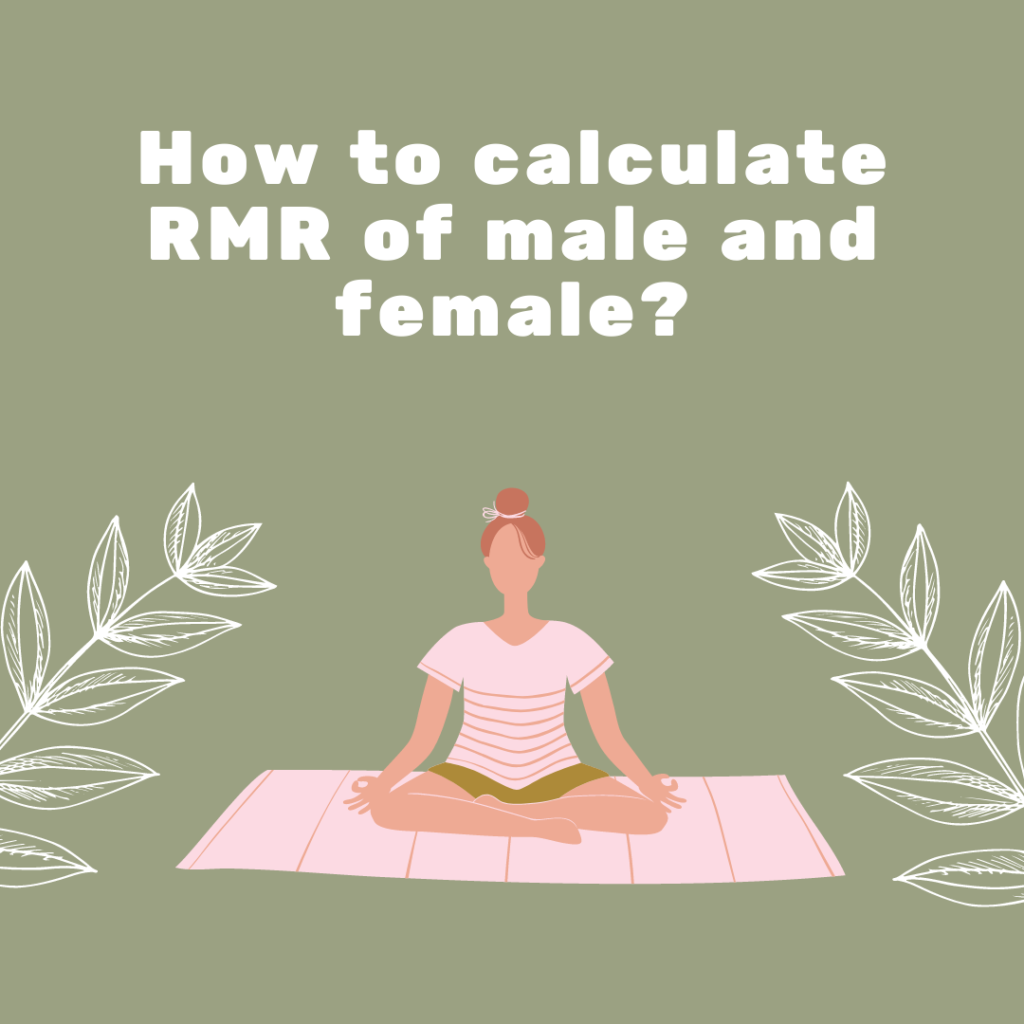What is the resting metabolic rate (RMR), How to calculate the RMR of males and females?
The process of eating, digesting, and excreting food may seem a straightforward process to us but inside our human bodies, it is a highly complex biochemical process. The food we eat is not only digested to smaller particles rather assimilated to their most fundamental components.
As a result, the energy released as well as required to digest food particles is regulated through the process of metabolism. Or we can say that all the biochemical reactions taking place in our body are termed as metabolism.
While the rate at which metabolism occurs in our bodies is known as metabolic rate. In other words, it is the estimation of at what rate the food constituents are broken down in order to keep humans working.
The metabolic rate is further divided into two types namely the Basal Metabolic Rate and Resting Metabolic Rate. They both assess the quantity of energy (in calories) your body requires to stay alive and function correctly.
Your basal metabolic rate monitors how many calories your body requires to function. While the RMR is the amount of energy your body requires to function at rest.
In this article, however, we are only going to focus on what is RMR and how to calculate it in males and females.
Resting Metabolic Rate
The amount of energy required to sustain resting conditions such as respiration, circulation, muscle tone, body temperature, glandular activity, and the other processes of the body is referred to as the resting metabolic rate (RMR) of the individual.
Knowing your resting metabolic rate (RMR) may help you understand how many calories you require to operate at your resting state, as well as what you should consume (or avoid consuming) in order to achieve your health and wellness objectives.
The fact that you have a higher RMR means that you will burn more calories while you are at rest. This will also help you to raise the number of calories you can take in a single day in order to achieve your weight-loss objectives.
Calculating Resting Metabolic Rate
It is possible for the rate to differ significantly from one individual to another because it is dependent on numerous unique characteristics such as age, body composition, size and even gender.
Compared to women of the same age, weight, and height, adult men usually have less body fat and more muscle mass. As a result, males have a faster time burning calories compared to women.
That’s why there are two separate formulas (known as Mifflin-St Jeor formula) used to calculate the RMR of males and females. Let’s have a closer look at how to calculate the Resting Metabolic Rate of males and females separately. You can find the Basal Metabolic Rate and Resting Metabolic Rate by using online tools like rmr calculator and bmr calculator.
How to Calculate RMR of Male
The Mifflin-St Jeor Equation formed for males in 1990 is stated below.
RMR (Males) = (10 * weight in kg) + (6.25 * height in cm) – (5 * age in years) + 5
According to this formula, the required metrics are the height, weight, and age of the individual. First of all, the weight of an individual is calculated in kilograms and multiplied by 10. Then the height of the person in centimeters is multiplied by the number value 6.25.
Now comes the age which is multiplied by 5. After multiplying all these metrics by their constant numbers, the number 5 is added to the calculated age. Then the multiplied height is subtracted from the calculated age.
And at last this calculation is summed up to the multiplied weight earlier. The resultant value calculated at this last step gives the RMR of males.
Calculating RMR of Female
The Mifflin-St Jeor equation for calculating RMR in females is the same as males except for the last arithmetic operation and its value. In males, the number 5 is summed up from the calculation while in females the number 161 is subtracted from the calculation.
The formula used could be denoted mathematically in the form
RMR (Females) = (10 * weight in kg) + (6.25 * height in cm) – (5 * age in years) – 161




